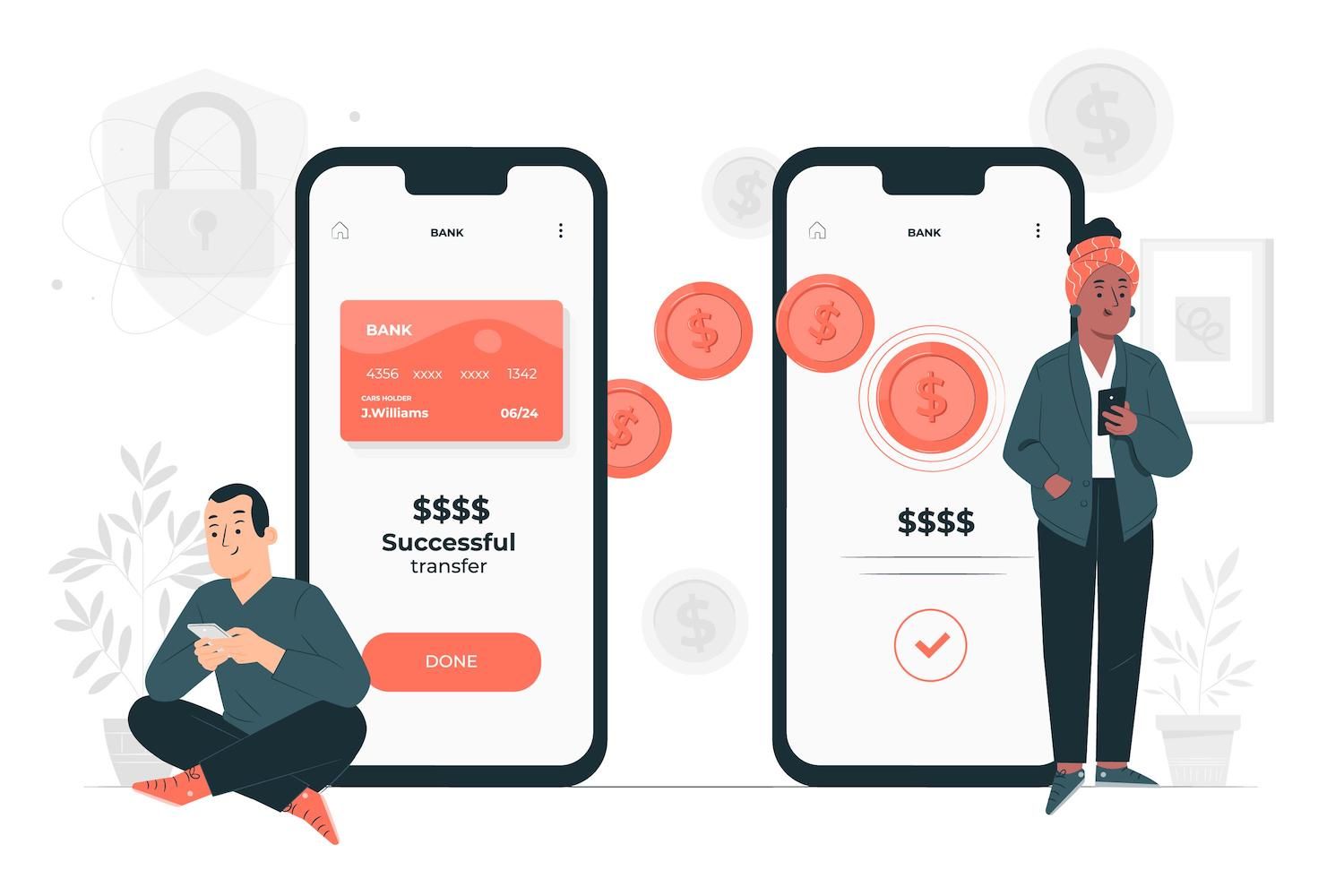International Recurring Payments (How We Handle It for You) --
When managing international recurring payments, there are three overarching factors to be considered:
- Staying current on local tax laws as well as transactions regulations
- This makes it simple for consumers to complete the first purchase as well as sign up for recurring payments
- Ensuring each subsequent payment goes through
While this may sound simple but there are a myriad of variables to take into consideration to achieve those three goals which include:
- Currency conversion rates
- Payment types that are preferred
- Payment processing
- Collection of taxes and payment for every nation, state, or territory for each state, country, territory.
- Payment failure handling
- Fraud prevention
- Subscription management
- Translations of the site
- Chargebacks
- Process of Dunning
- and there's and much more.
The majority of recurring payment companies can only aid you in a few of these areas and leave the remainder for you to determine. For example, certain payment service providers can help you process the payment in foreign currency, however they won't assist you with paying taxes for those nations.
In this post we will discuss the definition of the Merchant of Record and how :
- We collect and pay sales tax (including GST, VAT and GST, etc.) for you
- Keeps up to date with local laws and regulations
- Reduces churn with proactive payment retries and customer notification
- Makes it really easy for customers to buy
- Manages recurring payments for you
- All you need for one flat rate
What Does it Mean to Have as your Merchant of Record
A Merchant of Record (MoR) is a business which sells products or services to the buyer. The MoR is accountable for each element of the transaction, including the collection and processing of payment information, security, taxes as well as compliance issues charges, audits etc. If there is a problem or is not done correctly, the MoR will help in resolving the problem on behalf of you.
The company can function as its personal MoR and handle all of these tasks internally. Or, they could contract the entire process out to us, and we be the sole responsible party for every transaction. As your MoR, you control the service or product, shopping experience, as well as the branding -- we handle everything else, namely taxation, compliance with the law as well as credit card network approval rates, dunning rates and many more.
Let the Collectors and Remittance of VAT and Sales Tax.
There was a time that SaaS and software were exempt from tax law in many jurisdictions all over the world (or in other words, not a big subject to audits). Tax regulations for the sale of digital products are evolving and being more strongly enforced.
Every country, state, province, territory, etc. that you do business with is governed by its own rules concerning the quantity and nature of tax that must be collected, and the time when the tax must be to be paid. And that's a lot to manage.
Note:.
Typically, global tax management involves using a processing platform as well as the tax compliance software for calculating and collecting VAT and sales taxes for each transaction. While some payment platforms will take care of tax collection however, you'll be accountable for paying these taxes. If you don't pay the right amount of tax, you could find yourself owing thousands dollars in penalties and interest. However, figuring out the best way to pay taxes in each jurisdiction is often very time-consuming and usually requires a group comprised of accountants and tax specialists.
If your MoR is due We collect and pay taxes on consumption (including GST TVA, SST, etc.) on every transaction. We also file every tax return required by you.
Automatically calculates and adds required taxes to the customer-facing price at checkout. We also support tax-exempt transactions as well as other specific cases.

Always be in compliance with Local Laws and Regulations
Just like taxes, each nation, state and territory. is also governed by its individual laws and regulations regarding how transactions that are recurring take place. In particular, there is a law that states the Reserve Bank of India limits automatic recurring payments to Rs15,000 INR. If the amount of a transaction is greater than the limit, the consumer has to manually approve the transaction with the use of an additional factor authentication (AFA) such as a one-time password (OTP). In order to be in compliance with this RBI rule, you must file an electronic mandate that outlines the type of AFA that you'll use.
This is just one example of different rules you must consider when transacting globally.
Maintaining a current knowledge of the local regulations of each jurisdiction can be time-consuming and cost a lot. If you do not have the correct procedures in place, you won't be able to collect payments. Certain payment services can help you stay on top of local regulations and laws by notifying you if they learn about new laws or regulations. Your company is in the end accountable for being aware the applicable laws and regulations.
For customers, this won't be a concern because as the MoR for you, we assume full liability for ensuring compliance with the local laws and regulations for transactions. Our team of legal experts keep up-to-date on the relevant laws and regulations, making sure that all processes are in place to collecting payment.
We are fully in compliance with the EU General Data Protection Regulation (GDPR) and the California Consumer Privacy Act (CCPA). Additionally, we keep our level-one certification (which is the most prestigious level possible) by certifying to an annual certification to the Payment Card Industry Data Security Standard (PCI DSS) each year.

Eliminate Involuntary Churn through Automatic Retries on Payments and Customer Notifications
Involuntary churn being one of the main ways subscription-based companies lose customers and customers, many businesses have a system for automatically retrying failed payments or notifying customers of failed payments. It is an excellent first step, but the next step is to notify customers of soon-to-be-expired payment types prior to they make the payment, and then follow up multiple times following a failed payment. But, it will take several hours of staff time and effort to maintain the systems.
That's why handles every payment error and notification for our customers.
sends out email reminders to cardholders when their card will expire, so they can update the data prior to whenthe card's payment is processed. also automatically retries failed payments. When the payments continue be unsuccessful, the system will promptly notify the user. It is also possible to have us send out reminder emails two five, seven, fourteenand 21 days following the date that their payment process does not work. In our experience, the reminders and alerts we send out can significantly decrease the level of involuntary the churn.

During this time the customer's services won't be disrupted. By continuing the service, the customer will be less likely to allow the subscription end and will be more inclined to make the effort to update their information.
There is the option to suspend rather than cancel your subscription if they are unable to correct the information on their payment. This will allow your customer to restart their subscription , without the stress of re-onboarding.
Create a streamlined process for customers to buy with preferred payment methods, localized transactions, Translations, and More
Friction at the purchase step may cause companies to take on smaller numbers of customers than they might have. In the case of international customers, there can be several causes for the friction that comes with payment. Examples include:
- It isn't possible to offer them your customers their preferred method of payment
- The text at checkout isn't written in a language that shoppers can comprehend.
- It's not listed in the local currency.
- The transaction gets declined or can take too long to process
assists you in overcoming these challenges through:
- accepting a wide variety of payment methods (and managing these methods so that the transactions are swiftly authorized)
- Translating your checkout page(s) to many different languages
- Converting prices to local currencies
This is covered in greater depth in the sections below.
Preferred Methods of Payment
Different types of payments are widely used in various nations. If you don't offer forms of payment that certain buyers use, you'll convert less of these to buyers. This is why it's crucial to ensure your payment solution is able to support all types of payments that your customers who are in the market for are comfortable with. But, most global payment services will be restricted in terms of transactions they can accept.
For example, some payment providers only support debit transactions. If the customers you want to target prefer to pay with credit cards or e-wallets (e.g., PayPal), this will be an issue.
If you are looking to take payments from abroad You must also consider the variety of credit card types used in different countries. For example, while MasterCard as well as Visa credit card are most commonly used in the United States, UnionPay is much more popular in China.
In reality, integrating and managing popular payment methods is more complex than simply the addition of their logos to the checkout page. Each issuer of cards has their own tolerance levels for fraud as well as chargebacks. They also have different rules regarding the way transactions are conducted. If you're not in compliance with these guidelines and the network could stop authorizing payments altogether.
is also compatible with popular debit and e-wallet payment methods including:
- ACH
- SEPA
- BACS Direct Debit Scheme
- PayPal
- Amazon Pay
Finally, card networks are more likely to accept local-processed payments when both the bank that is the purchaser and seller's are located within the same region (for example, a buyer located in Germany paying a business located from Germany). Works with several acquiring banks across the globe and will continue to add more. Since we sell on your behalf as a MoR, more of your company's transactions will be handled locally which means more payments will be approved.
Automatic Currency Conversions as well as Translations for Language Translations
People are more likely to believe in a checkout experience that's in their own language and in their currency. If you've never transliterated your checkout's text or converted your prices to the local currency and currency, you're likely to lose potential customers.
By using this tool, you are able to transform your shopping cart's contents into various languages, and then convert the customer-facing price in local currencies.
For shopping cart translations, you can:
- Each buyer should choose their preferred language using an option menu.
- It will lock the language and instantly select the correct language in accordance with the purchaser's geographical location.

Additionally, you have two choices for currency conversions:
- Set your own prices for each country. Our team can assist you in determining what the cost should be fixed.
If you choose to let convert product prices for you, we match the general format of the price. For example, if your starting price is $19.99 when the conversion in Euros is EUR20.29 then it will be converted to EUR20.99.
Create Your Own Subscriptions and Manage the Rest
It comes with all the tools you need to create and manage different types of recurring online payments. Below are some examples of types of recurring transactions you can manage with :
- Trials for free or without gathering payment information upfront
- Subscription payments that are prorated
- Periods of variable billing
- The subscription is suspended
- Upgrade renewals
- Prepaid recurring billing
- A subscription is included with one-time purchase when you sign up
- Plus...
It's simple to setup virtually any kind of subscription in just a few steps. It is possible to set up the majority of subscriptions without writing code, but you can develop more complicated subscriptions with our API and webhooks library.

All-in-One Pricing (No Hidden Fees)
Many payment system providers will cost a flat fee per transaction, and charge extra for each added option (e.g., access to international credit card networks, specialized subscription logic and so on.). These kinds of prices make it challenging to figure out exactly what you'll have to pay. This can make it difficult to expand globally when your business grows because prices will rise as you require new options.
There is no additional charge for each service. Instead, our team will determine a straightforward, flat-rate price that gives users access to each aspect of . The price you pay is determined by the amount of transactions you move through as well as you'll only be charged for transactions that take place.
